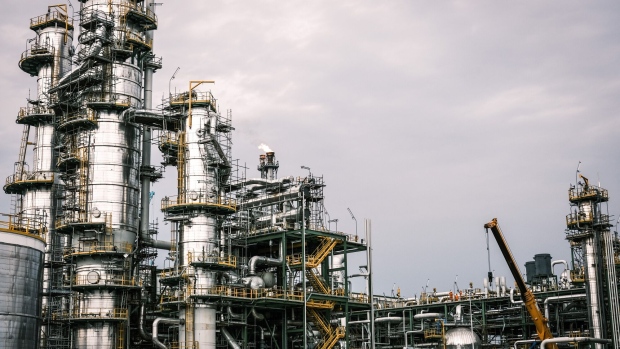Jun 6, 2023
Nigeria’s Decrepit Refineries Cost $10 Billion Over a Decade
, Bloomberg News

(Bloomberg) -- Nigeria spent more than $10 billion in a decade on three oil refineries that produced hardly any fuel, a parliamentary report said.
It cost the state-owned Nigeria National Petroleum Co. 4.8 trillion naira ($10.3 billion) to run the facilities from 2010 to 2020, even though they were operating far below their combined capacity of 445,000 barrels of crude per day, according to a report by a committee in the country’s House of Representatives. The company is currently rehabilitating the plants.
By the time they were put into rehabilitation, they had almost ceased to function and output had not exceeded 30% since 2010, according to the report. That left Nigeria entirely reliant on gasoline imports, whose price was kept artificially low by fuel subsidies.
The decades-long subsidy regime was scrapped by newly sworn-in President Bola Tinubu last week and the government has been working to address the refining challenges to temper fuel prices.
A giant 650,000-barrels-per-day facility built by Africa’s richest person, Aliko Dangote, opened last month, but it’s unclear when it will be able to supply a significant quantity of refined fuel to the domestic market.
Read More: Nigeria’s Mega-Refinery Opens to Skepticism Seven Years Late
The NNPC is also rehabilitating its 210,000-barrel-per-day complex in Port Harcourt and a smaller plant in Warri through contracts worth more than $2 billion with Italy’s Maire Tecnimont SpA and South Korea’s Daewoo Engineering & Construction Co. Ltd. respectively. Both sites are expected to resume operations before the end of 2023, according to the report which Nigeria’s lower chamber of parliament approved on Tuesday.
The report advised the NNPC to consider outsourcing the management of the repaired refineries to “reputable” international firms. A spokesman for the NNPC didn’t immediately respond to a request for comment.
©2023 Bloomberg L.P.





